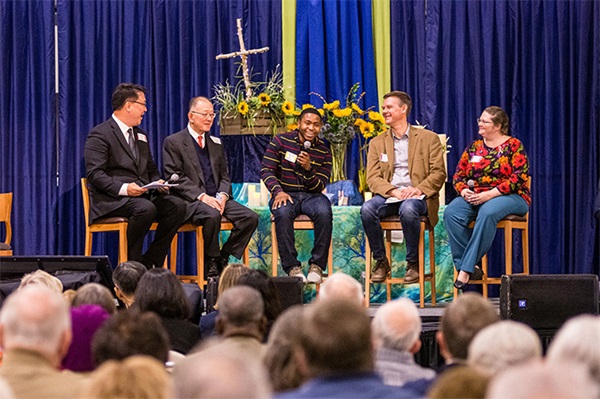Five rulings of law made when New Jersey United Methodists held a special session to discuss their own "way forward" through a denominational divide will be reviewed by the church's top court when it meets this spring.
Also part of the 14-item docket for the United Methodist Judicial Council is the continuation of an item from the Fall 2019 session regarding a request that the court review the legal impact of a finding of improper voting during General Conference 2019.
Your support of The General Administration Fund apportionment implements trustworthy administrative oversight like the General Conference sessions.
The council's spring meeting will take place April 29-May 2 in Minneapolis, just before General Conference 2020, which meets May 5-15.
Other docket items include rulings from the Michigan, Baltimore-Washington and Mississippi conferences and items from New England and Upper New York postponed from the previous session.
In general, the Judicial Council — required to review all rulings of law made by bishops — will look at whether Greater New Jersey's Way Forward Plan violates the Book of Discipline, the denomination's lawbook, or previous Judicial Council decisions and if the declarations made by Schol and the Board of Ordained Ministry do the same.
"Does the Greater New Jersey Conference have power or authority to make a decision for the local churches that violates the laws of The United Methodist Church?" asks one of the questions before the court.
At the Nov. 1 conclusion of its Fall 2019 session, the Judicial Council decided to hold the request submitted by the Council of Bishops on the question of improper voting during General Conference 2019 to the spring meeting. In Decision 1386, the Judicial Council noted that "because of our inability to get the information requested during oral argument" it would be best to reschedule the case.
The bishops brought the issue to the court's attention on behalf of the Commission on General Conference, which announced in August that its investigation found "credible objective evidence" of four ineligible people casting votes using the credentials of delegates who were not present at last February's special General Conference. That number was enough to nullify a key vote on how congregations can leave the denomination, the commission said.
Two docket items focus on representation at General Conference. The Baltimore-Washington Conference asked for a declaratory decision on whether a conference can adopt attendance policies for delegates to general and jurisdictional conference. A Mississippi Conference ruling involves the local church membership of a lay person serving as a General Conference delegate.
Reviews of two other rulings by bishops were held over from the fall meeting. In Upper New York, Bishop Mark Webb ruled that it was permissible to express disagreement with General Conference but not to impose "an immediate moratorium" on actions related to LGBTQ clergy and same-gender weddings. The New England ruling involved a resolution setting a procedure for local churches considering disaffiliation from The United Methodist Church.
excerpt from a story by Linda Bloom, assistant news editor, UMNS, based in New York.
One of seven apportioned giving opportunities of The United Methodist Church, the General Administration Fund implements trustworthy administrative oversight, supports the legislative processes of the church and curates The United Methodist Church's rich history. Please encourage your leaders and congregations to support the General Administration Fund apportionment at 100 percent.





